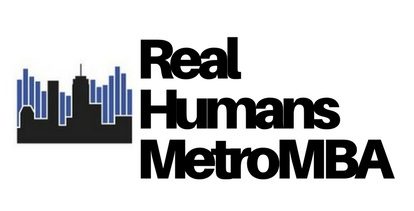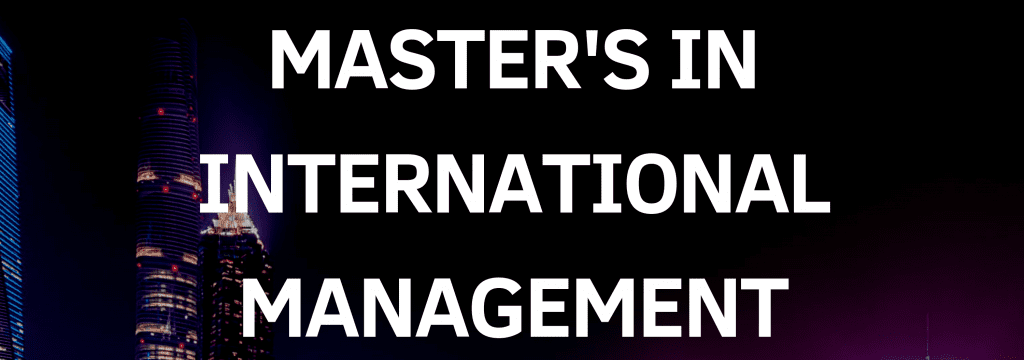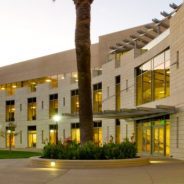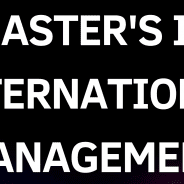Search results for :
Top 5 Paying MBA Careers: Marketing
MBA graduates in marketing can experience exponential career growth. According to Payscale, graduates in marketing often earn a starting salary of $55,700, which may double to $116,000 by mid-career. As the job is links to sales success, bonuses can also be lucrative.
Those who relish the thrill to sell might be curious about what positions can maximize their salaries. The benefits of these positions can vary by location, experience, and company.
Top 5 Paying MBA Careers: Consulting
Consulting still is one of the top career choices for MBA graduates. Part of the reason is because consulting firms are very open to recruiting MBAs from a wide range of backgrounds.
According to the 2018 Prospective Student Survey conducted by the Graduate Management Admissions Council (GMAC), consulting is the most sought-after postgraduate industry. An estimated 34 percent of applicants consider consulting their career of choice.
Salary is a crucial factor in that choice. Although consulting salaries depend on a lot of factors—time, location, office, and position, to name a few—the pay is relatively high across the board.
Below, we’ll break down the highest paying jobs in consulting, where to work to earn the most money, what MBA programs are best for the career, and the top companies to work for. Continue reading…
Online MBA
About the NDNU Online MBA
NDNU is proud to bring its vast experience in education and teaching to the online MBA. Online learning is a great way to access the resources of Notre Dame de Namur University without ever leaving home.
The university now offers innovative online learning programs to meet the high demand of master’s degrees that can be completed part-time in two years. Discover the online master’s program in Business Administration (MBA). Choose from a focus in finance, human resource management, or marketing.
Notre Dame de Namur University’s online MBA is an affordable and flexible degree program designed for working professionals. In two years or less, you achieve a deeper understanding of essential management concepts and acquire the business acumen you need to take your career to the next level. The MBA program prepares you to make business-critical decisions and instills in you the analytical, collaborative, and problem-solving skills you need to lead in today’s business environment.
Our MBA faculty of experienced and practicing professionals fortifies this program with real-world examples drawn from today’s most relevant business issues.
You will learn to solve business problems by synthesizing and evaluating information using qualitative and quantitative methods of analysis. Plus, you’ll gain the leadership skills you need to make an immediate impact in any organization.
Program Structure
Courses are offered online in an accelerated format. Each class lasts seven weeks.
Curriculum
The MBA at Notre Dame de Namur University provides you with the tools to foster innovation, develop your leadership competencies, and cultivate the global business skills needed in today’s world. With flexible scheduling, and year-round start dates, students have the opportunity to advance their careers while still maintaining their personal and professional lives.
Every aspect of the MBA program is designed to encourage new ways of thinking to develop the knowledge and skills you need to be successful. You work closely with talented faculty who have extensive industry experience and diverse backgrounds. The curriculum combines advanced knowledge with the fundamental practical skills of leadership. You learn to master quantitative analysis and theory, applying them to real business situations. At Notre Dame, you merge career and academic goals to meet your needs.
Tuition, Scholarships, and Financial Aid
Tuition for the NDNU Online MBA is $959 per unit for the 2019–20 academic year. The MBA requires a total of 36 units to complete the degree.
Most graduate students at Notre Dame de Namur University fund their studies through a combination of student loans, outside scholarships, employer reimbursement, or individual payment plans. Federal student loans awarded to graduate students are not based on need. Notre Dame de Namur University does not offer any merit-based scholarships to graduate students.
Admissions
Students may apply to enter the MBA program in the fall, spring, or summer semesters. No GMAT is required. Applicants should meet the following requirements:
• Completed NDNU application for admission
• Professional resume
• Two letters of recommendation, academic or professional
• Official transcripts from all colleges and universities attended, with one transcript showing a bachelor’s degree from a regionally accredited institution in the U.S., or equivalent academic preparation outside of the U.S. All transcripts from universities outside the United States must be evaluated by a professional credential evaluation service. We accept evaluated transcripts from members of NACES (naces.org).
• A cumulative GPA of 2.5 or better.
NDNU Online MBA prerequisites include: Financial Accounting, Statistics, Macroeconomics, and Microeconomics. A grade of “C” or better is required in prerequisite courses.
Evening MBA
Notre Dame de Namur University School of Business & Management Evening MBA Program Structure
Courses are offered on weekday evenings on the Belmont and Tracy campuses.
Curriculum
There are four concentrations available in the Notre Dame de Namur MBA program:
• Finance
• Human Resource Management
• Marketing
• Media and Promotion
The MBA at Notre Dame de Namur University provides you with the tools to foster innovation, develop your leadership competencies, and cultivate the global business skills needed in today’s world. With flexible scheduling, and year-round start dates, students have the opportunity to advance their careers while still maintaining their personal and professional lives.
Every aspect of the MBA program is designed to encourage new ways of thinking to develop the knowledge and skills you need to be successful. You work closely with talented faculty who have extensive industry experience and diverse backgrounds. The curriculum combines advanced knowledge with the fundamental practical skills of leadership. You learn to master quantitative analysis and theory, applying them to real business situations. At Notre Dame, you merge career and academic goals to meet your needs.
Tuition, Scholarships, and Financial Aid
Tuition for graduate programs is $959 per unit for the 2019–20 academic year. The Notre Dame de Namur University School of Business & Management Evening MBA requires a total of 36 units to complete the degree.
Most graduate students at Notre Dame de Namur University fund their studies through a combination of student loans, outside scholarships, employer reimbursement, or individual payment plans. Federal student loans awarded to graduates students are not based on need. Notre Dame de Namur University does not offer any merit-based scholarships to graduate students.
Admissions
Students may apply to enter the MBA program in the fall, spring, or summer semesters. No GMAT is required. Applicants should meet the following requirements:
• Completed NDNU application for admission
• Professional resume
• Two letters of recommendation, academic or professional
• Official transcripts from all colleges and universities attended, with one transcript showing a bachelor’s degree from a regionally accredited institution in the U.S., or equivalent academic preparation outside of the U.S. All transcripts from universities outside the United States must be evaluated by a professional credential evaluation service. We accept evaluated transcripts from members of NACES (naces.org).
• A cumulative GPA of 2.5 or better.
MBA prerequisites: Financial Accounting, Statistics, Macroeconomics, and Microeconomics. A grade of “C” or better is required in prerequisite courses.
Real Humans of the Miami Business School
The idea of a business school, for many, conjures images of rigidity: stuffed shirts, properly tuned haircuts, and brutalist, monochrome buildings—foundational visions of the business school stereotype. But these observations can be fairly limited, if not completely outdated. While some schools are still defined by business traditionalism, the University of Miami Business School offers a decidedly less obtuse vision.

The Miami Business School, overlooking Lake Osceola in Southern Miami, defies business school assumptions. Alongside the city’s effortlessly pleasant weather, potential students won’t find the the limited, formal degree options, with more choices than the vast majority of business schools virtually anywhere, including: three full-time MBA programs; three different Executive MBA programs; a part-time MBA option; Online MBA option; and five different dual MBA opportunities. In addition, the school offers eight on-campus specialized master’s options and two more online specialized masters degrees.
Simply stated, when it comes to a wealth of choices, you won’t find many schools that offer more.
Expansive opportunities also means an immensely diverse class of students. Statistically, Miami is considered the most “international” city in the United States, according to U.S. Census Bureau data, inviting a truly global array of career opportunities that few business schools can try to match.
When talking with several Miami Business School MBA students, the diversity of choices and Miami’s undeniably friendly international appeal is certainly reflective, including a French-born fitness expert, a clothing line founder, and a Venezuelan marketing guru, among others. Read on to see their stories and what the future may hold for life after an MBA.
Santa Clara’s Sr. Assistant Dean of Graduate Programs Answers Our 5 Questions
In our latest installment of the MetroMBA “5 Questions” series, we speak with Toby McChesney, Ed.D., Senior Assistant Dean of Graduate Programs at the Santa Clara University Leavey School of Business. McChesney talks about the not-so-secret benefits of the school’s MBA programs, the benefits of learning in Silicon Valley, and a local can’t-miss spot you have to see.
1. What’s Something That People May Not Know About the Santa Clara Leavey School of Business MBA Program?
“At SCU’s MBA program, we put students first. Our professors, with their deep Silicon Valley connections, are dedicated to bringing cutting edge curriculum to the classroom. This dedication does not stop there—they want to get to know our students on a personal level, and with our small class sizes, they are able to do that. As full-time faculty, they are available to meet with students to support their academic and professional challenges. Students here at SCU are never a number, and our small but mighty admissions, career and program team work tirelessly to ensure our students are well taken care of.”
2. What Separates the Business School From the Others in the Region?
“When looking at various MBA programs in the area, students should ask themselves if they want to be an MBA student for a few years, or a ‘Bronco for Life.’ Here at SCU, our students are joining a community of like-minded professionals with strong values for integrity, collaboration and leadership. Unlike other programs where competition between students is high, SCU MBA students thrive in a supportive and cooperative environment. This sense of community makes SCU a unique place to learn business, as students learn from one another while applying the concepts they learn in class each evening. Given that 90% of our students are currently employed at top Silicon Valley Companies like Apple, Google, and LinkedIn, this make for a very powerful, yet supportive, learning environment. Also, there are more alumni from the Leavey School of Business living and working in the Bay Area than from any other business school, so the alumni network is unmatched.”
3. What Kind of Prospective MBA Applicant Should Consider Enrolling in Leavey?
“We are looking for applicants that have a strong academic background, not necessarily in business, professional work experience of at least three years and most importantly a generous attitude. We are looking for students who are ‘other-focused,’ and want to use what they learn at SCU to better their teams, their companies, their communities, and the world.”
4. What Unique Opportunities Do Students Have Enrolling in Leavey, Considering its Location in San Jose?
“Our location in Silicon Valley allows our MBA program to draw the cream of the crop to our faculty; we have CFO’s and Venture Capitalists co-teaching our courses. Each class has a Silicon Valley component woven into the curriculum, whether that be a real-time case project, or C-suite co-teaching a course in which they are experts. Santa Clara MBA students will benefit from Silicon Valley experiential learning as well as innovation and entrepreneurship.”
5. If You Can Only Pick One Restaurant in the Area, Where Would You Go?
“The Hut.

The Hut, a San Jose icon, reopened in June 2019 after a temporary three-year closure / Photo via Karl Mondon/Bay Area News Group
The Hut has been an iconic gathering place for all SCU students for many decades, it closed in December 2016 and has just reopened as a restaurant and bar.”
A Guide to the Specialized Master’s in International Management

Welcome to MetroMBA's Master's in International Management Guide. As the world's best business schools continue to evolve, traditional MBA programs are being replaced or supplemented with specialized master’s degrees. For many schools, that means including a Master's in International Management program to provide graduate training for those seeking to develop careers in a global economy.
Scroll down to find some of the world's best Master's in International Management degrees offered by the world's leading business schools: a list that continues to grow year by year. But first, what is a Master's in International Management, what does it take to graduate, and what career opportunities are available after graduation?
What is a Master of International Management?
A Master’s in International Management (MIB) degree combines international business, international political economy, and the learning of languages and world cultures. It’s designed for business professionals seeking to establish or accelerate their career in international business and the global economy.
The degree focuses on international operations, offering an in-depth understanding of strategic planning and organizational capabilities required for global business. It includes specialized learning in areas such as international marketing, finance, and human resource management. It also addresses topics such as imports and exports, intercultural communication, and multinational corporations.
The end goal of an MIB degree is to broaden students’ cultural awareness as well as their professional life. Students should walk away from the degree with a better understanding of different traditions and practices along with the ability to adapt to new locations and ideas.
Typical Coursework
Students who choose a Master's in International Management degree will take advanced business courses that help them adopt a global perspective. Those courses are accompanied by studies in economics as well as specific studies in the governments of other countries. The goal of the coursework is to teach students how to operate in multi-cultural situations and environments.
Another essential aspect of the curriculum are foreign language skills. In many programs, students are required to complete a study abroad component to help increase their appreciation for other cultures.
Typical classes include:
- Economics and Global Environment
- Corporate Finance
- Financial Markets
- Global Operations
- International Business Strategies
- Business Policy
- Global Supply Chain
Most business school also encourage internships or a capstone project where students participate in real-world challenges. The goal is to give students hands-on, practical knowledge in their given career choice. Beyond that, depending on the program, you may have the option to customize your coursework to a more specific area of finance. For example, you could take courses in:
- Mergers and Acquisitions
- Design & Marketing
- Hedge Funds
- Corporate Entrepreneurship
- Family Business Management
Program Accessibility
Most Master’s in International Management programs tend to be one year in length, though many others require a full two years for graduation. Programs can be full-time or part-time, residential or online, it all depends on the exact program you choose. However, most of the top programs are full time, requiring students to take courses in different countries and cultures.
Admissions into an MIB program can vary based on the business school, but typically requires a high level of excellence in grades, test scores, professional experience, and communication. Applications may consist of:
- Competitive TOEFL, IELTS, or PTE scores (if you did not graduate from an English-speaking university)
- International Experience
- Resume (work experience ranges from two to 10 years, but averages around two-to-five years)
- Essay
- Letters of Recommendation
- Academic Transcripts
- GMAT or GRE (averaging quantitative scores in the top 80%)
At minimum, applicants are expected to have at least two years of work experience under their belts, preferably international with strong leadership experience. Students also have to be willing to study abroad on multiple campuses and in a multicultural class with many different nationalities and a broad range of professional backgrounds.
Typical Cost
Tuition varies greatly among top business schools. It ranges from $50,000 to $100,000 USD for a year plus living expenses. This cost does not include expenses for study abroad programs. In many cases, funding is available for MIB students in the form of scholarships, fellowships, employer sponsorship, and teaching assistantships. There are also loans and external financial support sources available.
Career Opportunities
Graduates of a Master’s in International Management are equipped for careers in global business. They should have sufficient skills to be leaders in a variety of environments and in a range of situations where they would be critical to the decision-making process. Career opportunities are diverse and plentiful, and typically include large corporations where global operations take place.
Most often, graduates will work for a business that either has offices in multiple countries or markets their products abroad. Graduates tend to take leadership positions in these companies, displaying their skill in the competitive international labor market. Popular industries include consulting, technology, consumer goods, financial services, and health/pharma.
MIB graduates are highly sought-after employees. Potential job options include:
- Marketing executive
- Public relations account executive
- Sales executive
- Supply chain manager
- Human resources office
- Financial trader
- Data scientist
- Business development manager
The salaries for a Master’s in International Management graduate varies depending on the final career field. According to Payscale, the average salary is $81,000. However, the highest paid earn $139,000 while some of the lowest paid earn $74,000. Here’s how that breaks down:
Sales Director: $74,123
Senior Financial Analyst: $75,960
Business Analyst (IT): $86,673
Human Resources Manager: $102,950
Operations Director: $116,213
Technical Advisor: $139,810
The Top Master's in International Management Programs

The University of St Gallen in Switzerland offers the top-ranked international Master's in Management program in the world, according to The Financial Times. The publication has crowed the program as the best in the world every year since 2011.
The MA in Strategy and International Management (SIM) offers one of the highest salary averages on the planet, with grads pulling in an estimated $108,621 USD three years after earning their degree. A typical graduating class features 51 students at an average age of 24-years old. The most recent class is also one of the most gender balanced in the academic world, with 53 percent male students and 47 percent female students.

Barcelona's highly-regarded ESADE (Escola Superior d'Administració i Direcció d'Empreses) at Ramon Llull University hosts one of the world's most-celebrated MSc in International Management programs. The one-year program features a maximum of 70 students in two separate program sections, starting every year in September. Students can also take an optional internship during the program, lasting anywhere from three to six months.
ESADE MSc graduates earn employment at a rate of 84 percent within three months of earning their degree, earning an average of €43,484 ($48,944 USD). The majority of graduates, 51 percent earn various roles in the consulting industry.

The London Business School Global Masters in Management (Global MiM), delivered jointly with Fudan University in Shanghai, delivers two specialized masters in a two-year, full-time program: a Masters in Management (MiM) and a Masters in Science (MSc) in International Business.
An estimated 100 percent of the most recent graduating class earned career offers within three months of earning their degree, with clear, definitve employment advantages in both English-speaking countries and China.

The MSc in International Management program at the SDA Bocconi School of Management offers applicants a truly global masters program, working in partnership with 31 universities. The program is the sixth highest-ranked Master's in Management program in the world, according to the Financial Times.
Graduates from the program boast a near 99 percent employment rate within one year of earning their degree. The FT estimates that SDA Bocconi MSc in International Management grads earn a roughly-weighted annual salary of €68,699 (over $77,000 USD); a 61 percent salary increase after earning the degree.

The 12-month MSc Business Administration/Master in Management at the Rotterdam School of Management at Erasmus University in the Netherlands is billed as one of the more challenging masters programs in the world, but one of the most rewarding. Financial Times data indicates that program graduates should expect an annual salary increase of around 45 percent, with a three-year post grad annual salary average of $78,922 (USD). The program also gets special marks from the publication for "International Mobility" rank, placing it second best in the world.
 Loading Programs
Loading Programs
The Increasingly Competitive Online MBA Alternative
For busy career professionals who can’t afford to take time off of work or who travel or live away from a world-class university, an Online MBA program is a viable option. The latest programs offer incredible flexibility, rigorous curriculum, and a very comparable experience to an in-person MBA.
So, it should be no surprise that the online MBA is growing in popularity exponentially.
To better understand the landscape of the online MBA and to follow up on our first piece, The Online MBA: Which Programs Matter?, we reached back out to USC Marshall, UNC Kenan-Flagler, Michigan Ross, Indiana Kelley, and CMU Tepper. They allowed us to pick their collective brains even further to unravel the mystery around the online MBA.
The Evolution of the Online MBA
Just a few years ago, it seems, earning an MBA online was not considered a valid option. After all, what employer would take an online MBA seriously? It was only for those students who wanted an “easy” degree and didn’t want to go through the effort of a “real” full-time MBA program.
In 2011 when UNC Kenan-Flagler launched their online MBA program with 19 students, The Wall Street Journal wrote, “UNC Makes Risky Online Bet.” But times have changed, and so has the landscape of the MBA. While the full-time MBA isn’t going anywhere anytime soon, it does have some solid competition.
“Today that so-called ‘risky bet’ has yielded almost 2,000 graduates who are thriving in their careers and deeply connected to the UNC Kenan-Flagler community,” explains Kenan-Flagler Dean Douglas A. Shackelford.
An online MBA is not only a respectable choice, but a sought after choice. It’s all due to a better understanding of what an online MBA is and the perceptions of the quality and power of an online MBA.
“Online MBAs have certainly become a more viable option for students as the technology evolves and students see that they can get the same quality education remotely as they can on-campus,” explains Cindy McCauley, Executive Director of Online Masters Programs at CMU Tepper. “You no longer have to trade off learning from top faculty, or building a strong network, when you choose an online MBA program.” You get it all.
Benefits of an Online MBA


The surging economy has had a major impact on the growth of the online MBA. More so than ever before, professionals are reluctant to step out of work to complete a full-time MBA program.
There’s a segment of the business community—particularly mid-career and late-career professionals—who don’t want to put their career on hold for school, but they still want the benefits. These individuals need a convenient alternative that allows them to earn their MBA while still working. That’s where the online MBA comes into play.
Accessibility and Flexibility Are Hallmarks of the Online MBA
According to Patti Russo, the Managing Director of Part-Time MBA programs at Michigan Ross, online MBA programs offer two distinct features:
- Access
- Flexibility
“In terms of access, online programs extend a school’s reach to students who want to pursue a top-tier MBA program, but are not located geographically close to a school,” explains Russo. “The online program also makes earning an MBA really flexible by giving working professionals the opportunity to stay at their jobs while obtaining a world-class business education.”
Online MBA students can work around their schedule, taking time away if needed to pursue career advancement.
According to Ramesh Venkataraman, Chair of the IU Kelley Direct Online MBA & MS Programs, this flexibility especially comes in handy for professionals who have recently received a promotion or accepted a new position. Representing around two-thirds of the IU Kelley MBA class, these students cannot afford to spend time on campus, considering they don’t know where they’ll be at any given time.
“We also enroll a large population of active duty members of the military and working professionals who travel often for work, and who need the ability to complete coursework while living or working abroad,” says Venkataraman.
For example, one UNC Kenan-Flagler student attended class from five continents thanks to his busy work schedule, but he never had to stop his education. An online MBA program means that you can attend class from wherever you are as long as you have a computer and Internet access.
“The online MBA is available to anyone, regardless of where they live,” explains CMU Tepper’s McCauley. “And it offers the same rigorous, analytics-based curriculum as the full-time program.”
Business is Global


The third crucial feature of online MBA programs is their ability to prepare students for the digital business world. As Russo says, “The business world is becoming increasingly more digital with individuals working virtually with others spread across the globe, and online curriculum will prepare students to succeed in this new environment.”
This thought is echoed by USC Marshall’s Vice Dean for Online Learning Programs, Sandra Chrystal. She explains that it was USC Marshall’s recognition of how global corporations rely on virtual teams and training to conduct business that sparked the creation of their online MBA.
“USC Marshall prides itself on innovation and continuous improvement,” says Vice Dean Chrystal. “We created a 21st-century multi-disciplinary integrated curriculum designed for a virtual platform, which mirrors business practices. Management communication and business analytics are components of all of the courses, and virtual team building begins immediately.”
More High Profile Players than Ever Before
The online MBA is also more competitive than ever before, which means the product offerings are better, according to IU Kelley’s Venkataraman.
“The increase in high-profile, credible organizations releasing rankings for online MBA programs have brought more attention and credibility to the online MBA space and, therefore, more interest in it by prospective students,” says Venkataraman.
A decade ago, few high profile top business schools offered an online MBA. Now, these same schools that were once reluctant to enter the online space are offering rigorous MBA programs, flooding the marketplace with exceptional curriculum, faculty, and opportunities.
And that change is being reflected in the rankings. Now, U.S. News & World Report, Princeton Review, and The Financial Times all release online MBA rankings. Students no longer have to choose between a well-ranked MBA and an online program—they can have both.
The students are also more high profile. An online MBA provides students with access to classmates who live and work around the globe and in a range of industries. This means that students can connect with a wider variety of individuals, building an expansive network.
It’s important to note that the class profile of an Online MBA program is more similar to an Executive MBA or part-time MBA program compared to a full-time program.
“Comparing the class profile of the online and on-campus programs is like comparing apples and oranges,” Kenan-Flagler Dean Shackleford says. “GMAT and GPA scores have little relevancy for evaluating them. They’ve been out of school for a long time and have significant work experience; what matters now is what they have achieved in those years—their career growth.”
Students Are Comfortable Online
Last, but certainly not least, is the change in how students perceive the online MBA. Applicants nowadays are used to technology and the increasingly digital world, so they’re not afraid of using technology for their education. In fact, they expect it.
“Students today are comfortable with online learning,” says UNC Dean Shackelford. “Even if they’re not digital natives, working professionals are accustomed to collaborating with remote workers and teams as part of their jobs.”
As for those students who aren’t as comfortable in an online environment and digital learning, an online MBA is a perfect opportunity to change that.
“Students will learn teamwork and leadership skills in a virtual environment,” said Michigan Ross’ Russo. “They will have to work remotely with their classmates on the course material and group projects, including our signature action-based learning experience MAP, which pairs student teams with global companies and organizations to tackle those entities’ greatest challenges.”
The Future of the Online MBA
So, where is the online MBA headed? What can applicants expect in the future? We asked USC Marshall, UNC Kenan-Flagler, Michigan Ross, Indiana Kelley, and CMU Tepper: “What is the long-term vision for your Online MBA?”
Here’s what they had to say:


Sandra Chrystal
USC Marshall School of Business Online MBA
“Although our Online MBA will continue to increase its diverse demographics, cohorts will not exceed fifty students. The number of cohorts may increase, however, and growth will be prudent. Since Marshall faculty teach all of these classes and Marshall instructional designers and production media teams create the asynchronous materials, the online MBA will consistently seek quality learning over larger enrollments.”
–Sandra Chrystal, Vice Dean for Online Learning
UNC Kenan-Flagler Business School MBA@UNC
“From the very start, our vision has been that the MBA@UNC is the same MBA program offered in a different format. We built the online MBA with the concept of no compromise: offering our MBA in a new format with the same quality (students, faculty, curriculum) and experience (deep engagement among our students and their professors to build lifelong relationships and networks) as our on-campus programs.
Now we are advancing that vision. First, we integrated all of our MBA programs’ operations, and now we are changing our processes so students can take courses in any MBA format we offer. We are blurring the lines of program format to meet the needs of students.
Our model is blended. You watch lectures recorded in high-quality format and meet for discussion in live classes on our platform where you see and interact with a small group of classmates and your professor. You also study together in person at our Global Summits—two in the U.S. and two in other countries every year. These small class sessions, group projects, and in-person summits are among the ways we ensure the UNC Kenan-Flagler culture is integral to our students’ experiences.”
—Douglas Shackelford, Dean, UNC Kenan-Flagler
Michigan Ross School of Business Online MBA


Patti Russo
“Our first Online MBA class is shaping up to be a group of highly diverse, very talented, and accomplished professionals. We are confident that future cohorts will be as well. In addition, the majority of students who attend Michigan Ross credit the program for widening not only their career prospects, but also expanding their worldview.
Our online students will join the Michigan Ross community, connecting them to a powerful global alumni network and tuition-free Ross executive education open enrollment courses for life.”
—Patti Russo, Managing Director, Part-Time MBA Programs
IU Kelley School of Business Online MBA
“The long-term vision for the Kelley Direct Online MBA is to continue offering a high quality, engaging, and rewarding student experience to students across the globe who are looking to progress in their careers and make a positive impact on their organizations and communities. We are pleased with the quality of candidates who have chosen Kelley Direct and will continue to seek out current and future leaders from a variety of industries to add to our powerful network of Kelley alumni.”
—Ramesh Venkataraman, Chair, Kelley Direct MBA & MS Programs


Cindy McCauley
CMU Tepper School of Business Online MBA
“We want our Online MBA program to provide the best educational experience and career outcomes for our students. We maintain a small class size to ensure that all classes are taught by our own faculty who teach in the full-time program and are not willing to trade quality for scale.
In our program, every class starts with in-person classes, so students can meet their faculty and connect with colleagues. Following these classes, students meet online in a format that allows faculty to see everyone in the class, and for students to interact as if they are in a classroom.”
—Cindy McCauley, Executive Director, Online Masters Programs
A Guide to the Specialized Master’s in Finance


Welcome to MetroMBA’s Master’s in Finance Guide. As the world’s best business schools continue to evolve, traditional MBA programs are being replaced or supplemented with specialized master’s degrees. For many schools, that means including a Master’s in Finance program to provide graduate training specific to careers in corporate finance, investment management, and financial analysis.
Scroll down to find some of the world’s best Master’s in Finance degrees offered by the world’s leading business schools: a list that continues to grow year by year. But first, what is a Master’s in Finance, what does it take to graduate, and what career opportunities are available after graduation?
What is a Master’s in Finance?
A Master’s in Finance (MFin) degree is hyper-focused on finance, covering a comprehensive range of topics within the field. It’s designed for early-career professionals and recent undergraduates hoping to ensure a future in the finance industry. Previous work experience is often not required, meaning that many applicants tend to be younger.
The degree dives into both fundamental and advanced subjects in finance, including finance theory, financial mathematics, financial accounting, financial modeling, pricing theory, and computational methods. The goal is to help students tackle the multi-faceted challenges that they’ll face in the field of finance.
Students should graduate being able to handle everything from capital budgeting to cash flow analysis, dynamic asset allocation, and big data-based investment strategies. They should also be well versed in finance ethics and social responsibility, which they’ll draw from throughout their career.
Another dimension of the Master’s in Finance degree is computational methods. Depending on the program, students might find that their degree requirements include basic programming skills in R or Python for processing and analyzing data. Finally, action learning, workshopping, and internships can play a key role in the MFin, providing students with hands-on experience in finance.
Typical Coursework
Some Master’s in Finance programs begin with core business courses covering economics and other critical business topics. Other programs jump right into financial markets, corporate finance, and finance theory. It depends on the program, but no matter what, the vast majority of the curriculum will emphasize finance.
Some typical Master’s in Finance classes include:
- Finance theory
- Corporate financial accounting
- Financial mathematics
- Finance ethics and regulations
- Financial markets
- Analytics of finance
Beyond that, depending on the program, you may have the option to customize your coursework to a more specific area of finance. For example, you could take courses in entrepreneurial finance or healthcare finance. Other options include:
- International capital markets
- Mergers, acquisitions, and private equity
- Consumer finance
- Financial engineering
- Programming literacy and programming languages (usually R or Python)
Program Accessibility
Most Master’s in Finance programs tend to be shorter, requiring just 12 months to complete all requirements. Others are slightly longer in length- up to 18 months-but few, if any, reach the two-year mark. Programs can be full-time or part-time, residential or online, it all depends on the exact program you choose. No matter the case, it’s typically an intensive and fast-paced program with a busy schedule.
Admissions into a MFin program can vary based on the business school, but typically requires a high level of excellence in grades, test scores, professional experience, and communication.
Applications may consist of:
- Resume (work experience ranges from up to10 years, but averages around one-to-three years)
- Essay
- Letters of Recommendation
- Academic Transcripts
- GMAT or GRE (averaging quantitative scores in the top 80 percent)
At minimum, applicants are expected to be familiar with mathematics and business basics prior to beginning their MFin program. Common undergraduate majors include: Math and Science; Business & Commerce; Economics; Engineering; and Computer Science. A solid understanding of economics, finance, and computer science is beneficial.
Typical Cost
Tuition varies greatly among top business schools. It ranges from $50,000 to $85,000 USD for a year, plus living expenses. In many cases, funding is available for MFin students in the form of scholarships, fellowships, employer sponsorship, and teaching assistantships. There are also loans and external financial support sources available.
Career Opportunities
Master’s in Finance graduates work in finance in some way, in positions that usually require financial training beyond basic business degrees. Most often, graduates will work in investments, trading, or risk management at an investment bank, commercial banks, accounting firms, hedge fund, venture capitalist, insurance company, public institution, fintech, or consulting company.
Whether working at a Fortune 500 company or a leading-edge boutique, MFin graduates are highly sought-after employees. Potential employers include:
- Bain & Company
- Barclays
- BlackRock
- Boston Consulting Group
- Morgan Stanley
- McKinsey & Company
- J.P. Morgan
- HSBC
- CitiGroup
- Deloitte Consulting
- Goldman Sachs
- Federal Reserve Bank of New York
- Procter & Gamble
One thing to note is that Master’s in Finance students typically earn less than MBA graduates, since they tend to have less work experience under their belts and a narrower range of skills. Projected salaries vary based on the exact career field with the highest paid earning $150,000 while some of the lowest paid earn $57,000.
Here’s how the salaries break down in terms of annual median salary (USD):
Hedge Fund Manager: $115,533
Financial Managers: $100,535
Asset Manager: $83,422
Senior Financial Analysts: $79,189
Personal Financial Advisors: $57,904
The Top Master’s in Finance Programs


The highly-regarded MIT Sloan School of Management offers the top-ranked Master’s in Finance program in the United States, according to The Financial Times. The MFin at MIT Sloan features a STEM-based curriculum that can be completed in 12-to-18 months, with optional concentrations in capital markets, corporate finance, and financial engineering.
A staggering 99 percent of MFin graduates earned full-time employment offers within six months of completing their degree, earning a median annual salary of $95,000 USD. Every student in the program also earned internship offers with some leading to employment at major companies like Barclays, BlackRock, and JP Morgan Chase.


London’s own Imperial College of Business offers the highest-rated Master’s in Finance program in the UK, according to The Financial Times The one-year program provides an education foundation that allows graduates to flourish in fields like investment banking, consulting, and asset management Over half of the program’s graduates, in fact, are employed in those three respective fields.
Over 91 percent of Imperial MSc Finance grads earn employment within three months of earning a degree at popular firms like Accenture, Credit Suisse, Deloitte, and much more. For its internal rankings, The Financial Times calculates the average salary of graduates three years after earning the degree, with Imperial MSc Finance grads earning $91,602 (USD equivalent)-a 43 percent increase in annual salary per graduate.


The legendary London Business School Master’s in Finance program can be completed on either a full (10-16 months) or part-time (22 months) schedule with four principle concentrations: Investment Management and Analysis; Risk Management and Derivatives; Corporate Finance; and CFO. A total of 125 students are currently enrolled in the full-time program and 64 students are in the part-time program.
An estimated 94 percent of LBS Master’s in Finance grads earn employment offers within three months of earning the degree, with a 93 percent acceptance rate. Like many UK Master’s in Finance programs, the degree is especially inviting to international students, which make up a reported 95 percent of the program. Overall, students earn an average post-graduate salary of £65,555.


The University of Maryland Robert H. Smith School of Business, better known as UMD Smith, offers applicants two potential Master’s in Finance degrees: the straight-forward Master of Finance, and the Master’s in Quantitative Finance. The program can be completed in one or two years.
The Financial Times reports that UMD Smith graduates earn around $83,547 per year three years after earning an MFin.


Oxford University’s celebrated Saïd Business School is one of the shortest top-ranked Master’s in Finance program in the world, taking only nine months to complete. The 75 students currently in the program are, on average, 23-years old. About 41 percent of the class is represented by female students, with 96 percent international students overall. The GMAT average of the class is 743.
The The Financial Times reports that Oxford MFin graduates can expect to earn around $109,403 (USD equivalent) three years after earning the degree.




What is the Best Business School Laptop for You?
While preparing for business school means connecting with future classmates, figuring out coursework, and brushing up on your writing and quant skills, other necessities—like what kind of computer you’ll need—can be overlooked. That’s why we’ve rounded up recommendations from leading MBA programs and highlighted which laptops you should consider.
For the desktop faithful, a powerful computer may be well-suited to take on the MBA curriculum. However, considering the majority of students’ traveling demands, in addition to the ease and comfort of bringing a laptop to class, a portable device is likely a better alternative.
Laptop Features that Business Schools Recommend
The question of having the right kind of business school laptop often comes down to simple prioritization, with cost usually at the top of most consumers’ concerns. But before you start roaming for discount deals, making sure your laptop has the right specifications is key.
Business schools, such UCLA Anderson School of Management, offer prospective MBAs a guide to what kind of computer they’ll need for the program, detailed below:


UCLA Anderson’s computer recommendations for its MBA students.
The majority of business schools, including the Northwestern University Kellogg School of Management and the MIT Sloan School of Management, suggest the same technical standards.
Most of the technical specifications listed above are fairly standard for laptops produced within the past several years, so finding a product that hits the minimum requirements is fairly simple. For example, Intel, the primary manufacturer of computer processing units, released its 6th generation Core processors in 2015, succeeding its 5th generation models. The only concern prospective MBA students may have are with computers that have an Intel Core M processor, which are below the suggested standards. Laptops with these processors, however, are often the most base-level on the market, and are typically only found in very inexpensive models. Intel has not released a new M processor since 2018.
Major companies like Dell, Lenovo, and Apple have all or most of the suggested specifications, such as webcam interface, integrated graphics cards, and 802.11 wireless connectivity, included standard in newer models. However, even when looking for a brand new laptop, one major element to take note of is the power of the hard drive. Even devices that would be considered in the mid-to-upper price tier, such as the Apple Macbook Pro and Dell XPS, do not come standard with a 256 GB SSD (solid state drive). Rather, the base-level models are usually paired with a 128 GB SSD, and there is a distinct price difference in comparison to 256 GB SSD models. Of course, for the handy few, installing your own SSD card into the computer is possible, and can mitigate much of the cost differential. But for most students, opting for a model with 256 SSD standard will be the most reasonable route.


Be wary: even costly base level models, like the Microsoft Surface, do not come standard with a suggested 256 GB SSD.
Software Requirements (Windows Wins at CBS)
While many prospective students won’t belabor the technical differences between certain laptops, the necessary software can often be more important. Columbia Business School‘s own “Choosing a Laptop” guidelines informs prospective MBA students that the software needed for the curriculum is based around the Windows operating system. Which means Apple users may be at a disadvantage, even if their laptops are fitted with Windows OS. In fact, the school recommends avoiding Apple altogether:
“If you intend to purchase a new laptop for your studies at CBS, the School highly recommends that you purchase a computer that already runs Windows natively (not a Mac). Many students who have chosen to purchase a Mac prior to CBS have later regretted the choice because they ended up using Windows more than anticipated, and Windows virtualized in a Mac never performs as well as if it were ran natively (e.g., the OS is slower and more prone to glitches, and there is a learning curve for the keyboard, etc.). For these reasons, we recommend that anyone who has to purchase a new laptop to meet the School’s minimum computing requirements selects a native Windows machine.”
For those hoping to attend CBS that already have an Apple laptop, the business school will provide students Windows OS free of charge. The only requirement, however, is at least 50 GB of free memory (Windows OS requires 35 GB).


Even if all the hardware specifications are met, Macbook users may be at disadvantage in MBA programs. Many institutions, such as Columbia Business School, require software tools only found in the Windows Operating System.
Affordable Options
MBA prospects that are in the market for a new laptop may be wise to focus attention on affordability. After all, with the cost of education, saving money anywhere you can is a plus. However, this decision comes with an obvious degree of consideration. Laptops under the $500 USD threshold often do not have the necessary hardware to handle an MBA curriculum. But for those who only need a device to get by, several models can do the trick with minimal cost, such as the Lenovo IdeaPad 330.


MBAs with affordability in mind should consider the Lenovo Ideapad 330.
The 14″ Lenovo Ideapad 330 base model starts at a modest $536.79 and comes with an 8th Generation Intel Core i7-8550U processor, Windows 10 OS, and 8 GB of memory, to start. The model can be upgraded with a 256 GB SSD, but cost-savvy buyers would do well to check out Newegg.com, which offers several 330 Ideapad models with 256 GB SSD for under $500.
For those wary about performance but still with cost in mind, the Acer Aspire E 15 might be a better alternative. Laptop Mag rates the Aspire E 15 among the best affordable laptops available, with a direct, succinct review:
“Every once in a while, a laptop comes along that defies its low price. Yet again, the Acer Aspire E 15 is one of those laptops. Punching well above its weight class, the 15-inch machine has a sharp 1080p display, good performance and a wide variety of ports. The laptop’s keyboard is comfortable, its battery life is decent and it stays cool under a heavy workload. Despite a few notable shortcomings—a poor webcam, bulky design and unwelcome bloatware—the Aspire E 15 offers excellent bang for your buck, which is why it’s our best overall sub-$500 laptop and a very good choice for students.”
PC World also highly-recommends the Aspire E 15, rating it as the “Best Laptop Under $500.” And like the Ideapad 330, several Aspire E 15 models can be found over at Newegg for under $500.
Considering the Long Term and an Upgrade
MBA aspirants with major career aspirations likely aren’t going to dwell too much on the price of a laptop alone. After all, for those thinking long term, a modestly expensive model will likely be a better investment. For those looking for a bit higher performance, it’s hard to go wrong with the Dell XPS 13.


For the best blend of hardware, design, accessibility, and price, the Dell XPS 13 has stood out for years.
Tech-savvy readers have likely heard this before. Outlets such as PC Mag, Laptop Mag, CNet, and Engadget have been showering Dell with praise since the introduction of the XPS line in 2012, which was the first official Dell “ultrabook.” In fact, it is currently the only model rated by PC Mag with a perfect score.
The company’s flagship 13.3″ laptop comes standard with an 8th generation Intel-i3 core processor, 4 GB of memory, and a UHD Graphics 620 card. However, for the 256 GB SSD and 8-16 GB of memory models, the price increases from a modest $899 to, at least, $1,079.99. Upgraded versions with touch-screen capability and a larger screen are available, but all of the requirements needed for a typical MBA program are met by the $1,079.99 model, which features 8 GB of memory, 256 GB SSD, and an 8th generation Intel-i5 processor.
Sparing No Expense
Your laptop likely isn’t going to just be for school. From major projects, to personal entertainment, and even gaming, your laptop will likely be your personal hub for many years to come. Virtually every laptop in the upper-cost echelon, ranging from $1,300 and up, fits the hardware requirements needed for an MBA program and then some.
For those already possessing a degree of business experience, the sight of a Lenovo ThinkPad X1 Carbon may be a bit familiar. A typical favorite of business professionals, Laptop Mag refers to the ThinkPad X1 Carbon as the “Maserati of business laptops” in its most recent review, with the 6th generation model boasting a beautiful Intel Kaby Lake-R CPU, and even an optional 2K HDR display. And unlike many of the aforementioned models, the ThinkPad X1 Carbon is built with an extremely sturdy frame, despite only weighing 2.49 lbs. For $1,367.10, it includes a standard 256 GB SSD, an 8th generation Intel-i7 processor, and 8 GB of memory—all of which can be upgraded.


The Lenovo ThinkPad Carbon X1 (6th gen), dubbed the “Maserati of business laptops,” is built perfectly for any MBA candidate.
Finding the Best Business School Laptop Deals
Major online distribution outlet Newegg is a favorite among the tech-savvy and often sports some of the best PC deals you’ll ever find. However, like Amazon, most of the laptop models you’ll find at steep discounts are often among lower-end models (unless, of course, you’re comfortable buying a refurbished computer). In addition, sales are often frustratingly temporary. However, there are certain times of the year when laptops may be had at a modest discount, with the best deals usually happening in the summer.
According to The Nest, “the months of August and September present opportunities for laptop buyers to save money. The traditional back-to-school sale applies to laptops just like it does to other school supplies. A shopper will see advertised sales during the last month of summer vacation and the first month of the new school year. Some laptop sellers even run specials in July as a way of getting ahead of the back-to-school sales.”
This article has been republished and edited with permissions from its original source, Clear Admit.
Top Online MBA Programs that Do Not Require the GMAT or GRE


MetroMBA has compiled crucial resources as you consider an Online MBA Programs that does not require the GMAT or GRE below:
Why Do Schools Require The GMAT/GRE?
Similar to how the SAT plays a role in undergraduate admission to higher education, the GMAT/GRE have been a consistent requirement for the majority of business programs globally. This standardized test has been one of a variety of factors that go into consideration when being accepted into programs. There are three main reasons that the GMAT/GRE has been part of the application process:
Reliable Indicator of Student Success:
Based on surveys conducted by GMAC, the GMAT has been a reliable indicator of student success in the classroom among MBA programs. Many applicants also choose the GRE as an alternative to the GMAT due to its lower cost and unique scoring system.
Equalizer in Admission Process to Gauge Quality of Prospective Students:
The GMAT/GRE also provides a standardized scoring system, which is applicable to all students entering admissions to top MBA programs. Other factors such as years of work experience and undergraduate GPA are subjective and can vary depending on the applicant.
Major Factor in Many Major MBA Rankings:
Major publication rankings such as the Financial Times, U.S. News & World Report, and Bloomberg take into consideration the average GMAT score for each MBA programs incoming class. For example, the mean GMAT and GRE score is weighted at 0.1625 percent for the U.S. News ranking. Historically, schools have an incentive to accept students with higher GMAT scored for ranking purposes in these major publication rankings.
Why Pursue an Online MBA?
There are many reasons to pursue an online MBA degree versus a full-time on-site MBA or a part-time on-site MBA:
Advancement in Technology:
The advancement in technology platforms, schools are increasingly able to provide an in-person atmosphere at remote locations for students. For example, many colleges utilize the web platform ClassroomLIVE, which is an integrated, web-based learning environment that delivers programs in real-time from classrooms on college campus’s direct to students, in their homes, at their workplaces, or while traveling. This provides a synchronous learning opportunity where students are able to interact live with professors and other students during the class as it is taking place on campus. Take a look at an example of the interactive learning platform here.
More Accepted Among Employers:
The stigma among corporate recruiters and hiring mangers when it came to online MBA job seekers was that it was not as respected compared to on-campus MBA offerings. However, with the online MBA becoming more popular among degree seekers, corporate recruiters and hiring managers are weighing the name of your college and the type of degree you have earned is more heavily than the method by which you earned your degree.
Flexibility:
One of the major issues facing MBA degree seekers is balancing a career and family obligations while also being able to complete an MBA. Many part-time programs are offered at specific locations on specific days, creating a barrier for applicants to pursue the degree offering. One of the major advantages of pursuing an online MBA program is the flexibility the learning experience offers. Many programs are beginning to offer students the option to attend the classroom learning in person, but not penalizing them for accessing the curriculum remotely.
Lower Costs:
Since the overhead cost are lower for colleges and universities, online MBA programs are typically cheaper than on-site program offerings. This is another advantage for students who are looking to complete a flexible MBA degree at a lower cost. On average, online MBA programs cost about 15-20 percent less than an on-site offering.
What are the General Requirements of Online MBA Programs That Do Not Require the GMAT or GRE?
For applicants who are looking to bypass the GMAT and pursue an MBA that does not require the GMAT, there still are requirements to be eligible for admissions to many online MBA programs, they include:
- Schools application
- Bachelor’s degree
- Resume
- Letters of Recommendation
- Personal Statement
- Application Fee
What Factors Should I Consider for Choosing an Online MBA?
Network of Professors and Faculty:
The professors and faculty in your MBA program are one of the most important facilitators as you learn the curriculum of an MBA. Professors have in-depth knowledge of business practices as they apply to the real world and the best ones can challenge you to apply the skills you learn throughout your MBA to real-life scenarios to prepare you as a business professional. It is important to understand your professors background and experience and how it will impact their teaching style and expertise.
Network in the Classroom:
Although professors and faculty will steer high-level learning, your classmates will have a large impact on your classroom discussions, projects, and case studies. Learning from experienced individuals will provide more value and insight throughout your MBA. It is important to prioritize the level of quality among your classmates to enhance your learning experience during your online MBA.
Alumni Networks
One of the most important assets an MBA program can provide is its inclusion to a wide range of alumni from CEO’s and CFO’s of Fortune 500 companies to presidents and general managers of global corporations. It is important as you consider the quality of the MBA program, that you also heavily factor in the alumni network that each institution provides to its newly dubbed alumni. These networks open doors to employment and internship opportunities post-graduation.
Internships
Many MBA programs offer internship opportunities during your educational experience. MBA internships allow you to get your foot in the door while directly applying the knowledge and skills you gained during your MBA. It is also important to research the career services office to see where previous MBA students have interned to make sure the opportunities fit your goals.
The Top Online MBA Programs That Do Not Require the GMAT or GRE:




New MBA Job Openings: Strategic Consulting Positions
Newly minted MBAs can choose to take their careers in a variety of different directions after they graduate. A number of them go into the world of consulting, advising clients, and businesses on various issues. This week we will highlight a particular subset of consulting: strategic consulting.
Strategic consultants help businesses and clients prepare plans for future products, optimize their organization, and develop advertising campaigns, to name just a few tasks. If you enjoy planning, researching, and thinking three steps ahead, you should look at this week’s jobs.
Top MBA Jobs: Senior Financial Analyst
Working in financial services is one of the most coveted career paths for MBA graduates. It pays well; you can find a job anywhere in the world; and top companies recruit in finance. Unfortunately, all that means that there is a lot of competition. It can be tough to break into the financial services industry though rewarding. If you’re interested in this lucrative career field, becoming a financial analyst might be the best place to start. Let’s take a look at what senior financial analysts do, how much they earn, who’s hiring, and where to earn your MBA. Continue reading…
Top 5 Paying MBA Careers: Finance
Finance, no surprise, is an extremely popular field among MBA graduates. According to Payscale, finance is 4.7 times more popular among MBA graduates than other fields. The reasons for this are rather uncomplicated: its pretty lucrative.
The starting median salary for those with up to five years of experience is $62,100. After ten years, the reported median salary jumps to $120,000; a 93 percent increase. Given that it is finance, the bonuses that employees can earn are massive, making the field even more lucrative.
With such high salaries and the prospect of massive bonuses, those interested in finance might be curious about what the best positions are for them. These can vary by company, experience, and location.
Companies Recruiting Finance MBA Graduates
The firm you work for can affect how much you make. Larger firms tend to offer more than smaller houses. The following are the top five employers in terms of average salary for those with an MBA in finance.
Morgan Stanley: $136,500
Deloitte: $132,656
Microsoft: $123,684
Amazon: $123,678
Citigroup: $121,346
Finance MBA Experience
As one might expect, the more experience one has in a field, the higher their salary will be. According to Payscale, this is a breakdown of average salary based on years of experience.
- Up to 11 Months: $58,517
- 1–4 Years: $65,589
- 5–9 Years: $86,086
- 10–19 Years: $113,775
- 20+ Years: $135,016
Finance MBA Location
Along with company size and experience, location is the other major determinant of salary for finance MBA graduates. Given the fact that finance tends to be centralized in major cities, it is reasonable to assume that the largest salaries are to be found in cities with large, well-populated metropolitan areas. The following are the five cities where MBA graduates can earn the most.
- New York, NY: $120,962
- Los Angeles, CA: $111,727
- Boston, MA: $109,490
- Chicago, IL: $108,421
- Houston, TX: $101,643


For finance savvy MBA graduates, New York City offers the best average salary opportunities in the United States.
Top Paying Finance Careers
While there are many careers from which a finance MBA can choose, the following offer the highest salaries. To maximize a potential salary, one should consider the variables mentioned above when searching for a position.
#1: Vice President, Finance ($135,000–$195,000)
As a vice president of finance, your primary responsibility will be to direct finances and coordinate the budget. The VP of finance also sets goals and oversees lower-level employees in the financial department. Other responsibilities include engaging in accounting, operations, and finance management.
Common tasks include the following:
- Ensuring company financial plans are carried out
- Coordinating, preparing, and reviewing annual reports
- Directing accounting operations
The average salary of a VP of finance is $134,919. In addition, MBA graduates can earn an average of $24,430 in bonuses, $24,566 in commission, and $8,757 in profit sharing. The salary on this job can raise these numbers higher depending on where one works. Look for these positions in the following cities, where you can earn more than the average:
- San Francisco, CA: 28 percent more
- Los Angeles, CA: 16 percent more
- Boston, MA: 15 percent more
#2: Finance Director ($110,000–$160,000)
Finance directors are responsible for managing the goings on in the finance department of the company. In addition, effective finance directors can see problems and risks and design necessary solutions as needed.
Common tasks include the following:
- Overseeing the preparation of regulatory and financial reporting as required
- Developing policies and procedures to control and report financials
- Managing budget, forecast, and accounting preparations
The average salary of a finance director is $111,384. MBA graduates can expect to earn an average bonus of $18,556, $33,000 in commission, and $5,113 in profit sharing. According to Payscale, the following are three highest paying companies for this position:
- Nike: $150,000
- Lilly: $130,000
- CBRE Group: $128,000
#3: Investment Banker ($99,000–$207,000)
As an investment banker, your primary responsibility is to grow wealth for your clients. This can be through either strategic investing or raising capital. Investment bankers look through all of the financial information of a company to develop the best strategy for addressing its concerns and reaching its goals.
Common tasks include the following:
- Constructing financial models to aid in transactions and communications
- Performing valuation analyses
- Conducting industry and company research
On average, you can expect to earn an average of $98,831 in salary. Investment banking is rather lucrative, so it is not impossible to double your salary in commission alone. However, because if this, the salary scale can widely vary. The average commission for this position on Payscale is $90,000. To make that possible, you’ll need to go to a city where capital generation is needed. These three places pay more than the average, according to Payscale:
- San Francisco, CA: 52 percent higher
- New York, NY: 12 percent higher
- Dallas, TX: 5 percent higher


Investment bankers would do well to look into a career in the Bay Area. San Francisco-metro investment bankers make nearly 50 percent more than the national average, according to Payscale data.
#4: Finance Manager ($90,000–$124,000)
Finance managers are expected to watch departmental budgets. Their primary responsibilities include making financial forecasts for their company, working with other departments to establish future budgets, and keeping excellent track of the money going in and out of the company.
Common tasks for people in this position include the following:
- Identifying areas for cost reduction
- Providing analyses to the operations team
- Preparing informational analyses
Given the importance of this position, MBA graduates who pursue it will be compensated well. The average salary for a finance manager is $89,636. In addition to the base salary, an MBA graduate can expect an average of $9,959 in bonuses, $25,006 in commission, and $3,982 in profit sharing.
Because this position is so important, companies are willing to pay excellent candidates well. The following offer the three highest average salaries according to Payscale:
- Boeing: $119,000
- Amazon: $112,000
- Johnson & Johnson: $111,000
#5: Portfolio Manager ($84,000–$140,000)
Portfolio managers are responsible for investing their clients’ money, whether those clients are businesses or individuals. They work to get the highest return possible for their clients’ money.
Common tasks for this position include the following:
- Consulting with clients to develop investment goals
- Reporting on investment performance
- Managing portfolios to maximize returns
Portfolio managers earn an average of $84,443, with $10,274 in bonuses, $10,113 in commission, and $4,000 in profit sharing. According to Payscale, these positions tend to be centered in financial institutions and investment firms.
The following three banks offer the highest average salaries to their portfolio managers.
- Blackrock: $115,000
- S. Bank: $99,000
- Citizens Financial Group: $97,000
School v School: UNC vs. UVA
Should you go to school in the Research Triangle or Virginia? What’s the benefit to each location and the MBA programs offered? How do you choose which school is best? You have to look at everything from the cost of living to employment and more.
Recently, our School v. School series compared Duke Fuqua to UVA Darden—you can find the comparison here. Now, we’re comparing UVA Darden to another top school in the Research Triangle, UNC Kenan-Flagler, to see how the two schools stack up. Continue reading…
Executive MBA
Arizona Eller College of Management Executive MBA Structure
The Eller Executive MBA is offered in a hybrid format, bringing students together for two intensive days of on-campus classes every month in addition to online courses.
Curriculum
The challenges students encounter in the upper levels of business leadership are complex and nuanced—in fact, there’s never just one factor on the line. It’s why Eller Executive MBA program courses are so uniquely structured, weaving multiple aspects of business together rather than teaching them in one by one in isolation.
Year One:
• Communications for Managers
• Applied Business Statistics
• Economics for Managers
• Leadership in Organizations
• Introduction to Financial Accounting
• Strategic Management of Information Systems
• Introduction to Managerial Accounting
• Market-based Management
• Information Security in Public and Private Sectors
• Managing Ethics in Organizations
• Leading Organizational Change
• Business Strategy
• Human Resource Management
• Operations Management
• Survey of Finance as Analyst
• Global Context of Business
• Survey of Finance as Corporate Manager
• Advanced Negotiations
• Marketing of Innovations
Class Profile
The Eller College of Management Executive MBA Class of 2020 at the University of Arizona is, on average, 40-years old. About 52 percent of the class are female students, with 48 percent male students, and 15 percent percent active military members or veterans. Students typically have 11.4 years of prior work experience.
Tuition, Scholarships, and Financial Aid
Tuition for the Executive MBA program is $68,000.
Many employers choose to sponsor an employee’s participation in the Eller Executive MBA program due to the immediate skills and strengths the student can bring back to work, right from the onset of the program.
In addition, a Community Leadership Scholarship is offered for exceptional candidates from the public sector or a nonprofit and for whom the program cost is prohibitive. The Community Leadership Scholarship covers partial costs of the Eller Executive MBA program for exceptional candidates from the public sector or a nonprofit organization for whom financial constraints would otherwise prevent participation. To be considered for the Community Leadership Scholarship, include a letter along with your application that addresses the following: the name of the public sector or nonprofit organization you work for, an explanation of financial need and a description of the positive impact your participation in the program will have on the community.
Sponsorship:
The skills and knowledge that the Eller Executive MBA impart transfer immediately, boosting not only individual performance but organizational capacity from the first week of the program. The Eller EMBA helps employees prepare for greater responsibilities within an organization at the same time that they educate and improve the productivity of employees below and around them. Because of the tangible benefits that stem from a more educated and skillful workforce, many organizations choose to sponsor employees’ participation in the Eller Executive MBA program.
Other financial aid—including government grants and loans—may be available to help pay program costs.
For information, visit the University of Arizona Office of Student Financial Aid.
Admissions
Admission to the Eller Executive MBA requires a combination of application materials submitted by the prospective student and others and an interview with the Admissions Committee.
Students will need to compile several documents for the application packet, some of which require careful consideration and work.
What We Look For:
The Eller Executive MBA is reserved for professionals with seven or more years of significant experience showing positions of leadership and progressive responsibility.
Employees with less experience may also be admitted if their career history demonstrates leadership potential and successful management of significant projects and assignments. These employees must procure a letter of endorsement from an executive-level supervisor.
Reserving admission for this select group allows for a more advanced curriculum with a focus on executive-level analyses and challenges and creates a class of professionals with equitable levels of experience and industry influence.
A complete application consists of the following items, to be received by the noted admissions deadline:
• A completed application form
• Application Fee ($85 domestic applicants/ $95 international applicants, waived until February 15, 2020)
• Two comprehensive essays
• A professional resume
• Two professional letters of recommendation and completed recommendation forms from two professional associates
• Official transcripts from all universities and colleges attended. For applicants with international school documents, please submit/present an official transcript and an official diploma (degree certification) in the original native language and must be accompanied by an officially verified English translation issued by the university or college, during the formal enrollment process.*
• TOEFL score (this is a proof of English proficiency requirement for international applicants born in a country where English is not the official language). Results should be sent to The University of Arizona Institution Code: 4832.
* We will accept unofficial versions of your school documents for initial evaluation purposes only and this acceptance does not eliminate the need for official school documents to be submitted. Also, include a copy of the grading scale or transcript key for each school transcript.
Application deadlines are as follows:
Early Decision – Oct. 15
Round One – Dec. 1
Round Two – Feb. 15
Round Three – April 1
Final Deadline – June 15
Applications will be reviewed on a rolling basis.
#1 Ranked IU Kelley Online MBA Undergoes Major Curriculum Update
Sponsored Content
Already ranked #1 by the U.S. News & World Report, the IU Kelley Direct Online MBA has revamped its program for a more customizable experience. Now, their online program is even more robust while still offering the same flexibility and strengths that have made Kelley Direct a long-time business leader.
As always, the same faculty that teach in the IU Kelley on-campus programs also teach in the Kelley Online program. The Kelley Direct Online program also still includes live case studies within every in-residence week, offers global and domestic immersions, and focuses on quality student experiences.
The purpose of the revamp wasn’t to take away any of the elements that made the online MBA so great in the first place. Instead, the goal was to enhance the curriculum and offer more customization to make the program even stronger.
The Kelley Direct Online MBA now offers students 50 percent electives, seven majors, and a signature integrated core experience focused on business fundamentals.
It’s the next evolution of the online MBA, which goes far beyond what people typically think of for online MBAs.
“The primary motivation for the redesigned online MBA was not to focus on a new market segment, but to update our product and create a significant differentiator from other competitors in the marketplace,” explains Ramesh Venkataraman, chair of the Kelley Direct Online MBA and MS programs.
More Electives for a More Customized Student Experience


A quick glance at the current marketplace tells you that a candidate with specialized knowledge is more valuable than a general management MBA candidate. So, it made sense for the Kelley Online MBA program to update its curriculum to match what employers want, and they did this by drastically increasing the number of electives offered.
“In general, online MBA programs tend to be more core-heavy with less potential for electives,” Ramesh says. “But why should our online MBA not have as many electives as any other product? Specialized knowledge is what the marketplace wants, and our new electives allow students to gain that knowledge and use it as a launching pad in their careers.”
The newly revamped online MBA, which launches this fall, requires students to complete 27 credit hours of core coursework and 27 credit hours of electives—a 50/50 split. It’s a significant change from the previous format, which allowed for just 12 elective credits. The increase—with at least ten different electives in each of seven disciplines—results in a far more customizable student experience that’s aligned with both student and employer expectations.
But don’t worry; to get here, the online MBA didn’t take away from the core knowledge students need. Instead, the new curriculum is far more streamlined. The core material has been compressed into two credit hour classes instead of three, but with the same subject matters and essence.
“They’re not going to lose content,” states Ramesh. “They’re just going to enjoy their core content in a new format.”
The newly revamped online MBA format breaks down the core curriculum into three blocks: understanding markets and institutions; delivering value through functional excellence; and creating and sustaining competitive advantage. Each block includes a trio of 12-week courses with eight live sessions each that leverage technology to get the content out synchronously and asynchronously.
- Core 1: Business law and ethics, economics, and organizational behavior.
- Core 2: Operations management, marketing management, and financial management.
- Core 3: Digital tech and innovation, developing strategic capabilities, and an integrative live case experience.
Though, you should note, the update does mean that there’s a little more overall work. Online students now have to complete a total of 54 credits compared to 51.
However, the hope is that this increased workload will result in MBA students from a wider variety of backgrounds choosing the program thanks to the depth and breadth of their new course offerings, which includes seven new majors.
- Business Analytics
- Entrepreneurship & Innovation
- Finance
- Global Supply Chain Management
- IT Management
- Marketing
- Strategic Management
These majors allow students to choose the curriculum that best reflects their interests and career goals. Now, it’s possible to go deep into a specific business area or industry in a way that wasn’t possible before, providing students with a way to optimize their resume and find the best opportunities for moving forward.
Learning Doesn’t Stop Inside the Classroom. It’s an Immersive Experience with Many Co-Curricular Opportunities.


But learning doesn’t stop in the classroom when you choose the Kelley Online MBA. It’s an immersive experience that helps you build skills and confidence far beyond the curriculum through co-curricular opportunities.
“We know that online MBA students want to build a set of experiences that complement what they do in their online courses, but there’s a lot of variability in terms of what students want to build,” says Adam Herman, executive director of the Kelley Direct MBA and MS programs. “So, we offer a wide range of co-curricular opportunities that students can use to strengthen their professional profile.”
There are four main types of co-curricular activities:
- Experiential learning, including global and domestic immersion experiences as part of credit-bearing courses.
- A robust slate of affinity groups/clubs, both identity-oriented and career field-specific.
- Twice-annual Global Connect Networking Night in 25-30 cities across the globe.
- A suite of high-impact offerings from the career and professional development center.
In particular, experiential learning is a hallmark of the Kelley Direct Online MBA program. From a variety of in-person courses that focus on a particular business area to global and domestic immersion experiences, experiential learning is a highlight of many students’ education.
“Experiential learning is super important to the Kelley Online MBA program,” says Joe Hwalek, a ’19 MBA and associate brand manager for Hyatt Place Hotels, Hyatt Corp. “The greatest experience has been working in smaller teams. You spend an incredible number of hours working and learning from them, and each time, I’ve been awed at the level of professionalism and the solutions that we’ve put together.”
These immersive, educational experiences enrich the online MBA and create life-changing moments where students can make connections and learn by doing.
For example, there’s an annual trip to Washington D.C. that focuses on public policy. Students spend a week at the Washington Campus exploring, site seeing, and learning from the best and brightest individuals in politics.
“The program is fantastic,” describes Elisa Stampf, a ’19 MBA and senior small commercial sales representative at The Hartford. “The first day we were on campus we listened to speakers from all walks of life, backgrounds, and political parties. The next day, we toured Capitol Hill, spent time at the National Press Club, and more. Everything was incredibly relevant, and was an investment that was worth every penny.”
Also worth every penny are the global experiences where students will see the world and gain international economic knowledge and skills to move their careers forward.
MBA Students Are Going to Work in a Global Environment, and Being Online Doesn’t Change that Fact.
“Just because you’re an online MBA student doesn’t change the fact you’re an MBA student in need of international experience,” says Ramesh. “So, the more our students understand what it takes to do business outside the U.S. and in different cultures, the better. Our global experiences are crucial to providing that exposure.”
These Global Immersions typically include 5-6 weeks of online content to give students a deep understanding of business in a rapidly emerging market such as Thailand, India, South Africa, or Cuba. Then students head to their country of study to visit key companies and work on a real-world project. After returning to their homes, students work on—and submit—valuable deliverables designed to meet their clients’ needs.
“Our group was paired with a client and tasked to solve some of their business problems,” remembers Elisa. “We faced some challenges along the way, but we were able to consult with a local MBA student who knew the language and culture and who helped strengthen our experience.”
Even if students choose not to head out on a week-long international trip to a foreign country, they still have the opportunity to gain exposure to global business during their second Kelley Connect Week. During that time, they take on a business case study in a foreign country, which forces them to solve an international business problem, giving every student a global perspective.


IU Kelley MBA students in Vietnam.
Kelley Connect Weeks Are When Students Fall in Love with the Program
Speaking of Kelley Connect Weeks, when you ask students about their most memorable times in the Kelley Online MBA, they’ll always mention these two weeks. As Elisa says, “Kelley Connect Week was when I fell in love with the program and what I was doing.”
In most online programs you rarely meet your fellow students in person. However, that’s exactly the point of Kelley Connect Weeks. You attend these twice during the program for a full week, not a short weekend, allowing you to be completely immersed in the program, city, and school.
“Kelley Connect Weeks immerse you in something bigger,” explains Elisa.
Kelley Connect Weeks are a chance to feel connected to your classmates, professors, and the program on a much deeper level. Students head to Indiana University’s Bloomington campus for a week when they’ll meet faculty and classmates, work on team projects, undergo intensive coursework, and attend networking events. The highlight of the week is the live business case where students work in a team to solve a real client/company problem before presenting their solution to the real company, face-to-face.
“The Kelley Connect Weeks are super rewarding,” says Joe. “I’ve created friendships that I’ll have for the rest of my life. And from a career perspective, my classmates have been a valuable source of advice and networking, ultimately helping me make a career change.”


Top-Ranked Career Services Take Online MBAs to the Next Level
And making a career change is why many online MBA students choose an MBA. They’re looking for a change in their function, industry, location, or promotion—a way to enhance their potential. And that’s why the Kelley’s Graduate Career Services are so valuable.
“We have a five-phase career development model for our online MBA students,” explains Adam Herman. “It begins before the first Kelley Connect Week when students are sent pre-work focused on their career goals. From there, students are assigned a dedicated career coach who works alongside the student and guides them throughout the rest of their MBA program.”
These career coaches regularly check in with their students one-on-one to provide insight, offer feedback, and help with overall career navigation. Combined with online materials, weekly communication, and the ability to take classes delivered by the career services office, students have endless opportunities to impact their career in both small and large ways.
With a 115,000-strong alumni network, there are thousands of ways to make meaningful career connections.
For Joe Hwalek, that meant changing his career twice throughout the course of the program. He started out working at an advertising agency, but what he really wanted was to make the switch to working for a corporation. And that’s exactly what he did.
“I’m very fortunate that throughout my online MBA, I was able to move to another ad agency and then to a strategic role with Hyatt,” Joe explains. “The MBA gave me the knowledge that I needed to showcase myself well and demonstrate my commitment to my career field.”
In the End, It’s All About the Students.
And, in the end, the Kelley Online MBA, revamped or not, has always been about what students can get out of it.
“Our lives are so incredibly unique and diverse, and we get to share those experiences live,” says Elisa. “I now have people across the country and world that I know thanks to this program. And we’ve all been able to help each other in our professional lives. The technology IU Kelley uses does a stellar job of bringing people together.”
“The reason I chose the Kelley Online MBA is the flexibility it gave me, no matter my life stage,” Joe says. “I was able to move homes, change jobs twice, and maintain my lifestyle all while continuing my education. Life is busy, and you never know what will happen, so the flexibility to adjust my schedule weekly was invaluable.”
Choose an MBA where your success is paramount. Learn more and apply at the Kelley Direct Online MBA website.
Executive MBA
Michigan State University Executive MBA Program Structure
The Executive MBA classes are held in-person. Students attend classes every other weekend at one of our three campus locations: East Lansing, Troy, or Detroit.
Classes are offered in a concentrated module format; each course meets four times spanning four in-class weekends. Friday evening courses run 6 p.m-10 p.m. Saturday courses run 8 a.m. to noon and 1–5 p.m.
Group meals on class day—breakfast, lunch, and dinner—provide dedicated time for students to connect with classmates. Technology is used to enhance the learning experience and to ensure that in-class time is interactive.
Curriculum
The 45-credit-hour Master of Business Administration (MBA) includes approximately 30 Executive MBA courses. The rigorous curriculum is designed to sharpen your business expertise and give you a competitive edge in your career. Throughout dynamic executive MBA courses, you’ll obtain the essential business knowledge, real-world skills, and insights you need to excel in the workplace and contribute to your company’s bottom line.
Our diverse set of courses focus on a wide range of subject matters, from strategy, leadership and management, to marketing, accounting, finance and supply chain management. Courses on information systems, business law and global perspectives are also incorporated into the comprehensive business curriculum.
Executive MBA Rankings
• Financial Times: 79
Class Profile
You’ll discover a diverse group of professionals. Our students hail from a wide variety of companies–from small, family–owned businesses and non-profit organizations, to global Fortune 100 corporations. They represent a range of cultural backgrounds, academic experiences, and family situations. However, all Executive MBA students have one thing in common: a tremendous drive to succeed.
The Executive MBA profile includes an average cohort size of 115 students with more than 80 companies represented. We require students to have at least five years of work experience to apply to the program, but most students have 12 years or more. Our current cohort includes a female population of 28 percent and an average age of 35 years old.
Tuition, Scholarships, and Financial Aid
The program offers a no-hassle, no-surprises, inclusive tuition package that include all tuition required course materials, hotel accommodations for orientation and residencies, and meals while on campus. Tuition will be established by the MSU’s Board of Trustees in June. For up-to-date tuition information, visit the website.
We offer students two scholarship opportunities:
• Executive MBA Alumni Association Scholarship
• Executive MBA Nonprofit Scholarship
Admissions
The following is required in order to apply:
1.) Attend a Preview Day or Information Session.
2.) Request transcripts from all previous college/university coursework. Applicants with degrees from non-U.S. institutions: please arrange for ONE official/certified/attested university or professional school records of subjects and mark sheets, transcripts, diplomas, and/or degree certificates to be sent to the address noted below from the principal or registrar of each school you have attended, or by the Ministry of Education in your country in a sealed envelope. The names of all certificates, diplomas, degree(s) earned, and dates received should be noted. Photocopies or notarized copies are not acceptable. Official translations must be furnished when originals are not in English. You must provide official transcripts. This process could take several months, so plan accordingly.
Send transcripts directly to:
Sarah Ellis | Admissions & Academic Services Coordinator
MSU Broad Executive MBA
The James B. Henry Center for Executive Development
3535 Forest Road, Suite A180, Lansing, MI 48910-3831
sellis@broad.msu.edu
3.) Identify, notify and enter two professional recommenders. These individuals will be automatically notified to provide their recommendations through a simple online form.
4.) Update and upload your professional resume.
5.) Complete the two online essays.
6.) Contact your campus of choice to schedule an interview:
For Lansing: 517-355-7603
For Detroit and Troy: 248-879-2725
A GMAT or GRE score is not required. While quantitative ability is a necessary skill, we seek evidence of each candidate’s ability through a variety of means such as previous course work, professional work experience, professional certifications, etc. An $85 application fee is also required.
Application deadlines are as follows:
Round 1: December 1, 2021
Round 2: February 1, 2022
Round 3: April 1, 2022
Round 4: June 1, 2022















